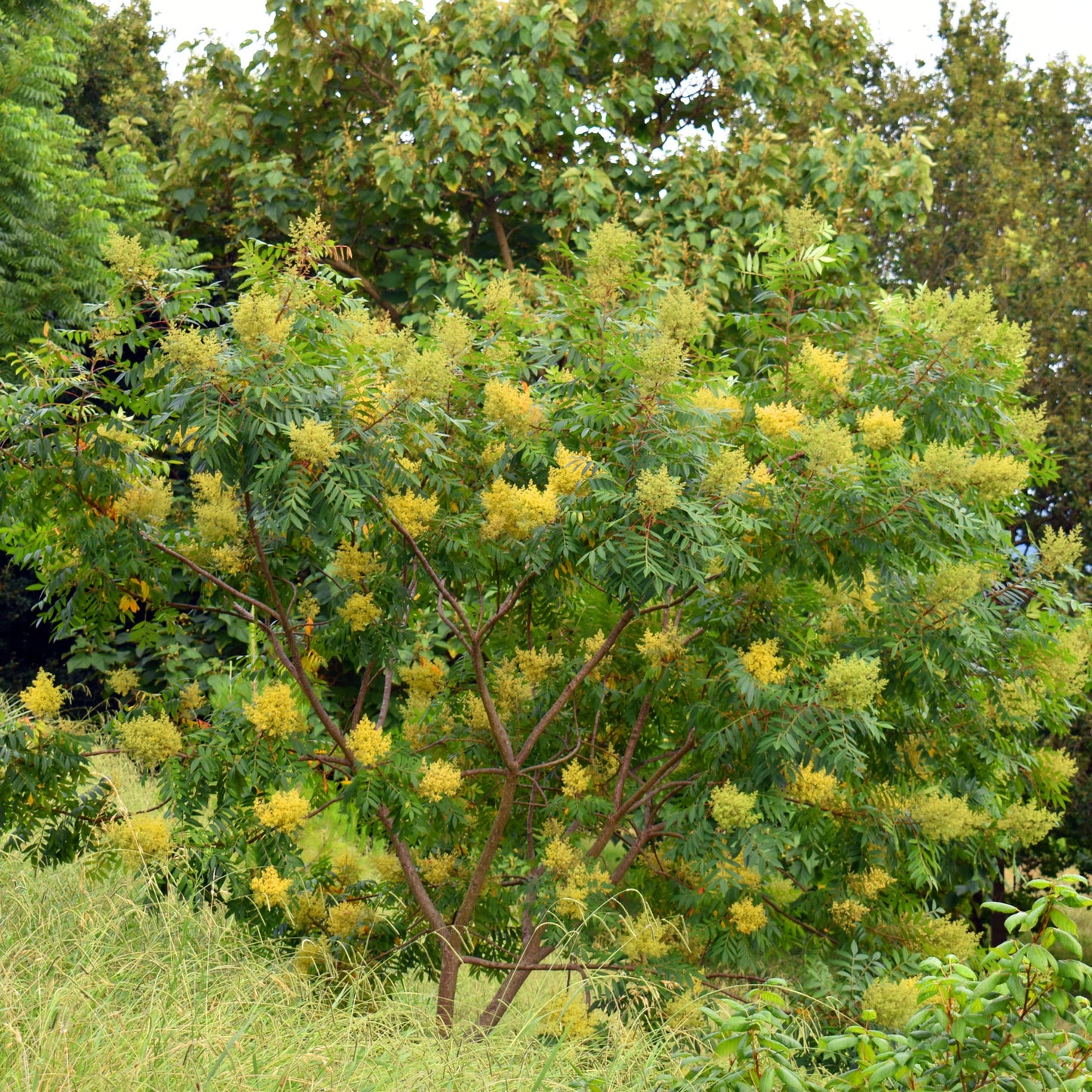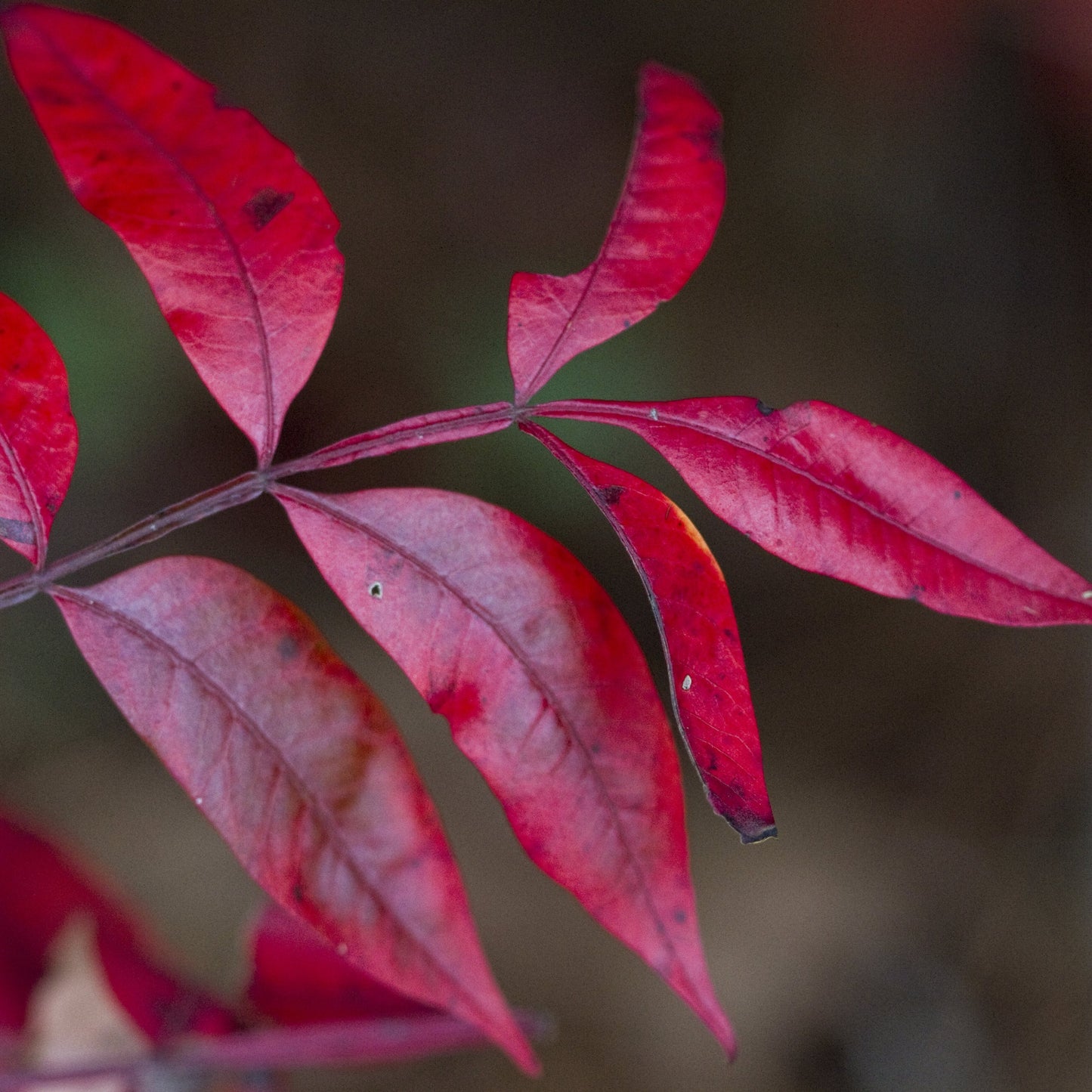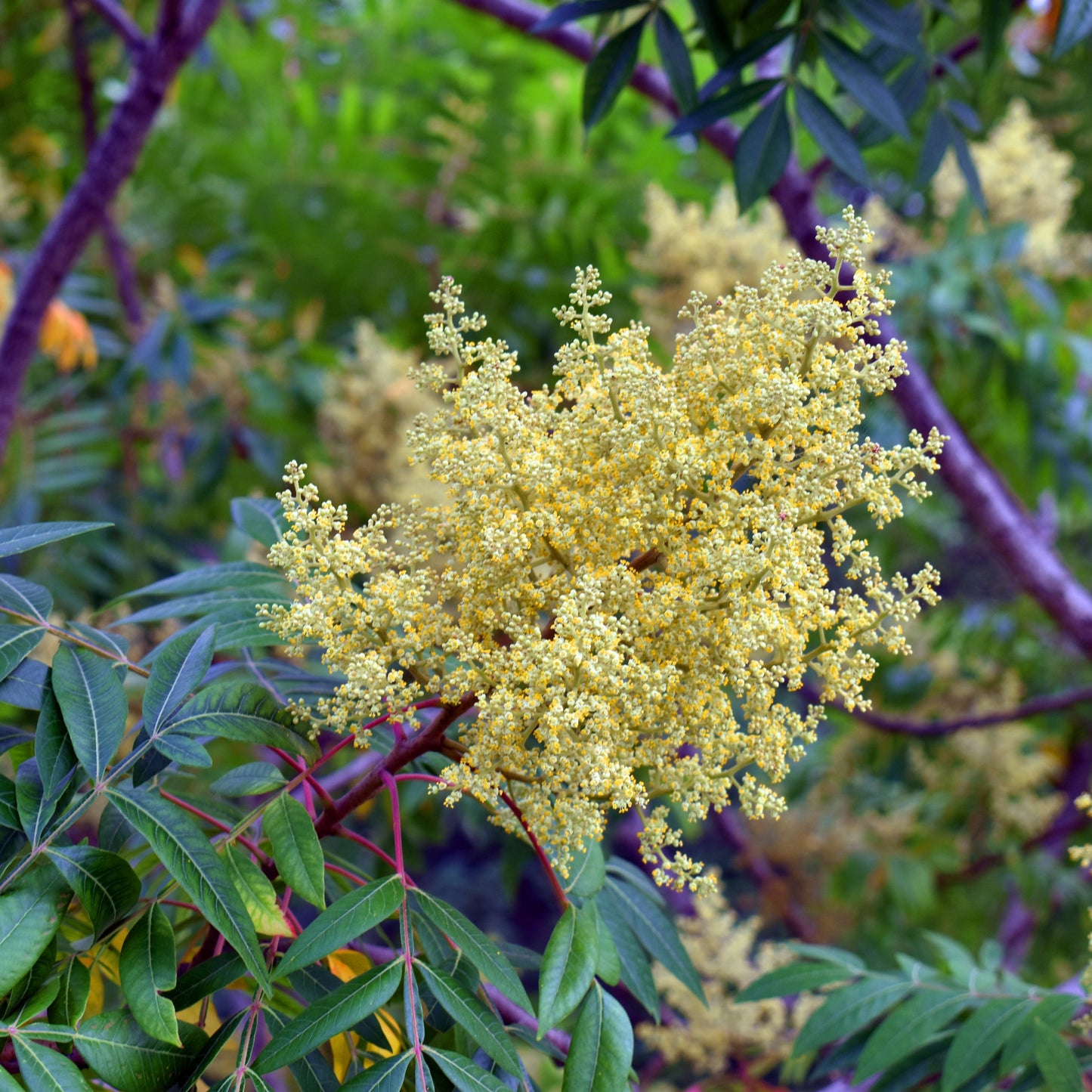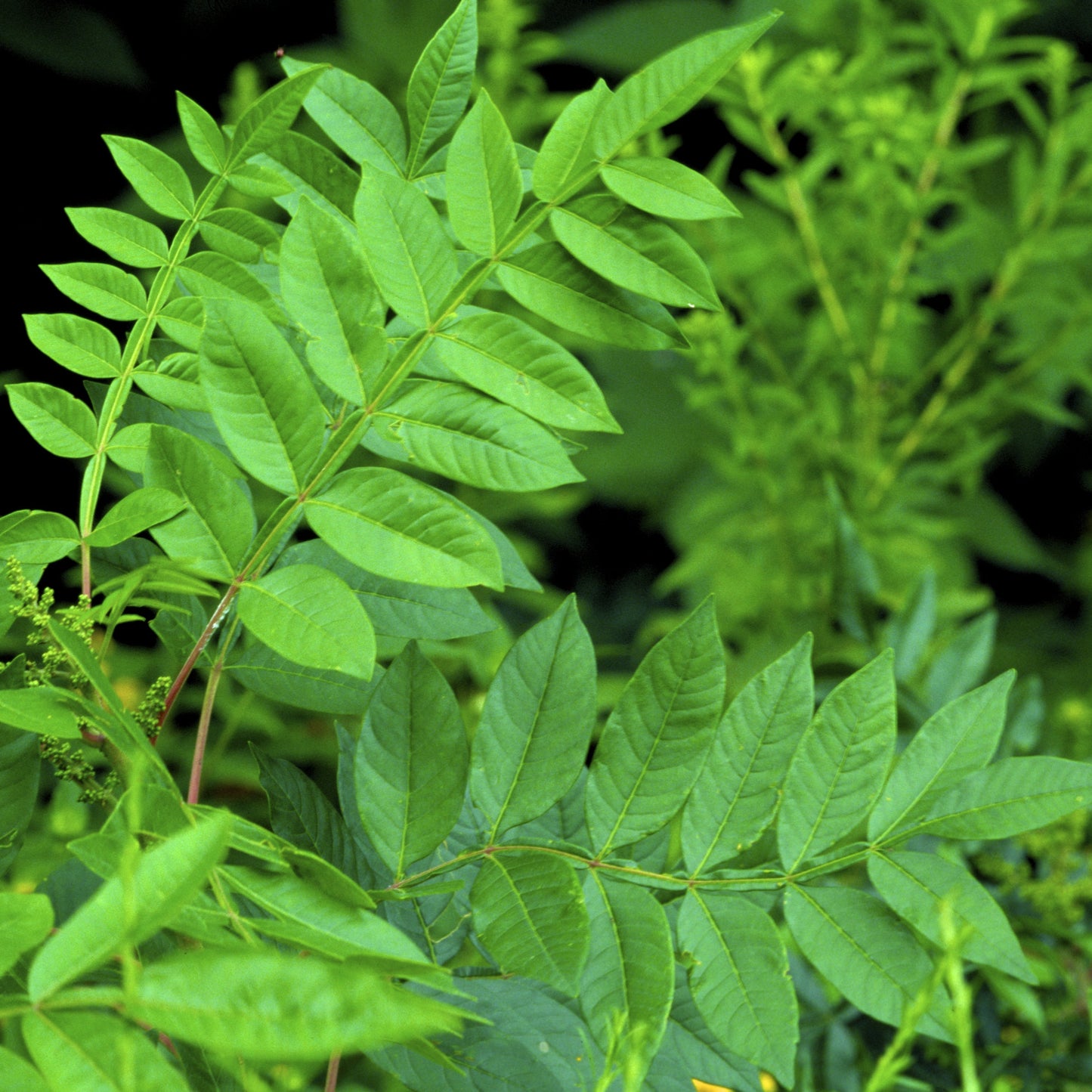Limited Quantities - Reserve Now For Fall
-
Intermediate Zones 4-9

-

-

-

Shining Sumac Tree
Shining Sumac Tree
Couldn't load pickup availability
Rhus copallinum
Shining Sumac
The Shining Sumac, also known as Winged Sumac or Flameleaf Sumac, is a striking native shrub or small tree admired for its glossy green leaves, vivid fall color, and architectural branching. It forms dense colonies through root suckers and serves as a vital wildlife plant with showy red fruit clusters that persist into winter.
Perfect for naturalized landscapes, erosion control, and pollinator gardens, the Shining Sumac delivers bold seasonal beauty and strong ecological benefits.
Shining Sumac Overview
| Attribute | Details |
|---|---|
| 🌿 Botanical Name | Rhus copallinum |
| 🏷️ Common Names | Shining Sumac, Winged Sumac, Flameleaf Sumac |
| 🌳 Mature Height | 8–20 feet |
| 🌐 Mature Width | 6–15 feet |
| 📈 Growth Rate | Fast (up to 24+ inches per year) |
| ⏳ Lifespan | 30–50+ years |
| 🧊 USDA Zones | 4–9 |
| ❄️ Chill Hours | 300–600 hours |
| ☀️ Sun Preference | Full sun to partial shade |
| 🧱 Soil Type | Dry to medium; well-drained sandy or rocky soils |
| ⚖️ Soil pH | Slightly acidic to neutral (5.0–7.0) |
| 💧 Water Needs | Low once established |
| 🌸 Flower Color | Yellowish-green panicles; mid to late summer |
| 🍒 Fruit Type | Red fuzzy drupes in tight upright clusters |
| 🐝 Pollinators | Supports bees, butterflies, and beetles |
| 🌿 Growth Habit | Multi-stemmed, suckering, thicket-forming |
| ↔️ Spacing | 8–12 ft apart for massing or natural borders |
| 🏡 Landscape Uses | Native meadows, slopes, wildlife borders, xeriscaping |
| 🧹 Maintenance Level | Low |
Environmental Benefits
🌸 Provides nectar and pollen for a wide variety of native insects
🍒 Fruits feed overwintering birds and small mammals
🌿 Supports biodiversity and natural succession
⛰️ Stabilizes slopes and disturbed soils with strong root systems
Pros & Cons
| ✅ Pros | ⚠️ Cons |
|---|---|
| 🍁 Brilliant red-orange fall color and glossy summer foliage | 🌱 Spreads aggressively via root suckers |
| 🍒 Fruit clusters provide lasting winter interest | 🍏 Fruits not palatable to humans |
| 🐝 High pollinator and wildlife value | ✂️ May require management to prevent unwanted spreading |
| 🧬 Native and highly resilient to poor soils and drought | 🐛 May attract leaf spot in humid climates |
| ⛰️ Great for natural areas, meadows, and erosion control | 🌳 Not ideal for small or formal gardens |
Planting & Care Guide
🛁 Water deeply at planting; minimal water needed after establishment
🕳️ Plant in well-drained soil; avoid compacted or waterlogged areas
🌾 Mulch lightly to suppress weeds, but allow room for suckering
💦 Water during extended droughts in the first 1–2 years
✂️ Prune in late winter to control spread or shape thickets
🧪 Does not require fertilization in native soils
The Shining Sumac is a tough, low-maintenance native that lights up the landscape with fiery fall color and supports essential wildlife throughout the seasons. Ideal for bold natural plantings, this sumac is a dynamic solution for beauty, biodiversity, and erosion control.
Share








